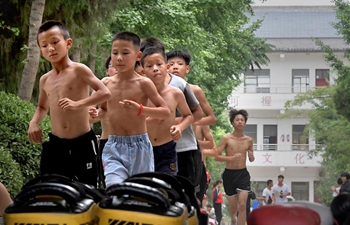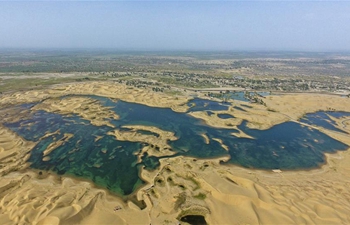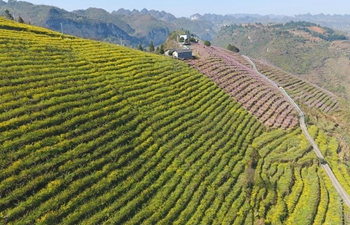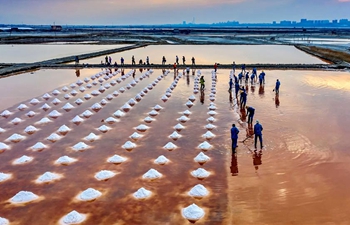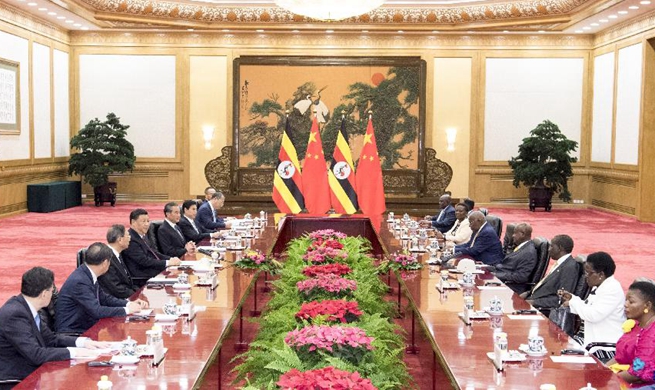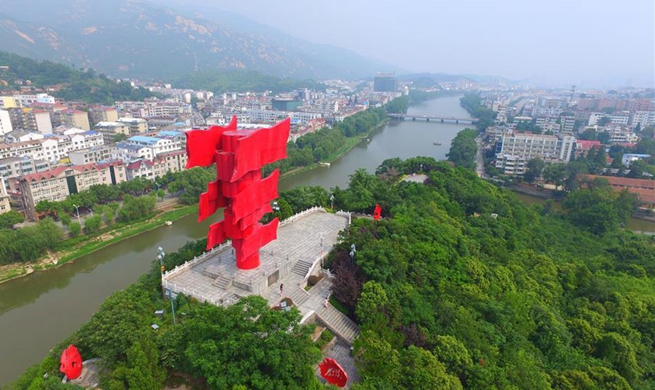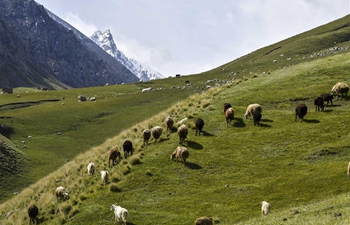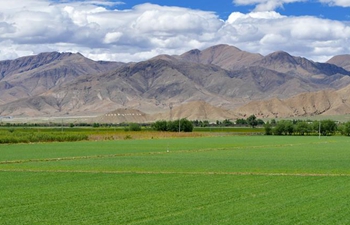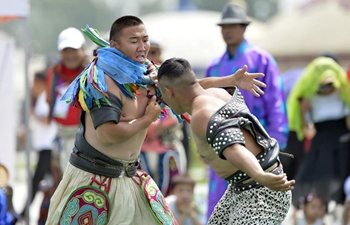MAZAR-E-SHARIF, Afghanistan, June 25 (Xinhua) -- Every morning Salima Mazari wakes up earlier than most to travel the 40 km between the provincial capital of Mazar-e-Sharif to make a timely arrival in the Chaharkint district where her office is located.
In addition to being the Chaharkint district chief in Balkh province, she also leads an anti-terrorist campaign in the heavily militancy-battered district in the north of Afghanistan.
Not only is the road the district chief regularly travels on not asphalted, but it is also mountainous, rugged and relatively unsafe in terms of security. Nevertheless, she has to travel on the road every day to get to her office, located in the old but naturally scenic Sharshar village of the remote district.
After the Taliban's hardliner regime was vanquished, the 37-year-old master's degree holder and mother of three returned home from Iran and managed to work for many offices in the country.
Nowadays, however, she worries about her district's fate in the war-plagued country. This has prompted her to lead a local campaign to fight against militant uprisings, along with her official duties as the district chief.
Wearing sunglasses and imparting a relaxed yet astute vibe, Mazari, accompanied by a group of local elders, a number of aid agencies' representatives and armed men, entered her office to hear their problems in order to find a solution.
After nearly one hour, the district chief, along with a few journalists, boarded a police truck and headed towards the major militancy trouble spot atop a mountain named "Koh-e-Piazkar."
After a lengthy drive, the truck finally reached Abkhana village, where for the local women and girls it was very unusual yet amazing to see a female district chief.
The local male residents and children gathered around her while scores of women and girls, wearing head scarves, gazed at her from behind the doors of their homes, because they live under strict local and religious rules and are prohibited from leaving their homes with their faces uncovered.
In the midday heat, the international media crews and a local TV station who was also covering the only female district chief's activities, hiked the rest of the way along a narrow lane leading to the hilltop.
A now exhausted Mazari, boosted up by her husband, made the final leg to the summit on the back of a donkey, offered to her by a local policeman who was otherwise using the mule to carry ammunition for security forces to the peak. Her convoy, comprising media personnel and supporters, followed behind.
Along the way, in Giru, a mountainous village, a number of livestock owners approached the convoy and voiced their complaints about the torture the Taliban had inflicted on them and their communities. They said the militants were taking their sheep by force and that the insurgents recently abducted two shepherds after opening fire on the villagers.
After nearly three hours, the district chief finally reached the village near the war zone, where she was welcomed by a crowd of more than 20 people including elders and youths.
According to the district chief, the Taliban have deployed more than 100 fighters in the Tandorak area of Chaharkint district.
"I shared the problems of the Chaharkint district to the provincial governor, police chief and the army corps commander six months ago, but to no avail. I will take your problems to them again," Mazari reassured 58-year-old Ahmad Boye, one of the local commanders who was providing her with information on how the militants could infiltrate the district.
There are a few combatants operating in the village who are still active in battling the Taliban's uprisings. The security of the district, however, is predominantly undertaken by the villagers themselves, she told Xinhua.
"We usually visit the frontline to encourage the locals and security forces around them and assure them that a government-led operation will be conducted to clear the Tandorak village of insurgents."
"If we strictly follow government policy, then we have to hand over the district to the Taliban, as there are not enough troops, no local policemen and no protective units," said the female district chief.
Salima Mazari is not the first woman to work as chief in the hostile district in the northern Balkh province.
Another former "jihadi" commander, Qumandan Kaftar, who had fought against the Taliban and rival warlords and whose nom de guerre could be translated as Commander Dove, is still powerful in the adjacent Baghlan province.
